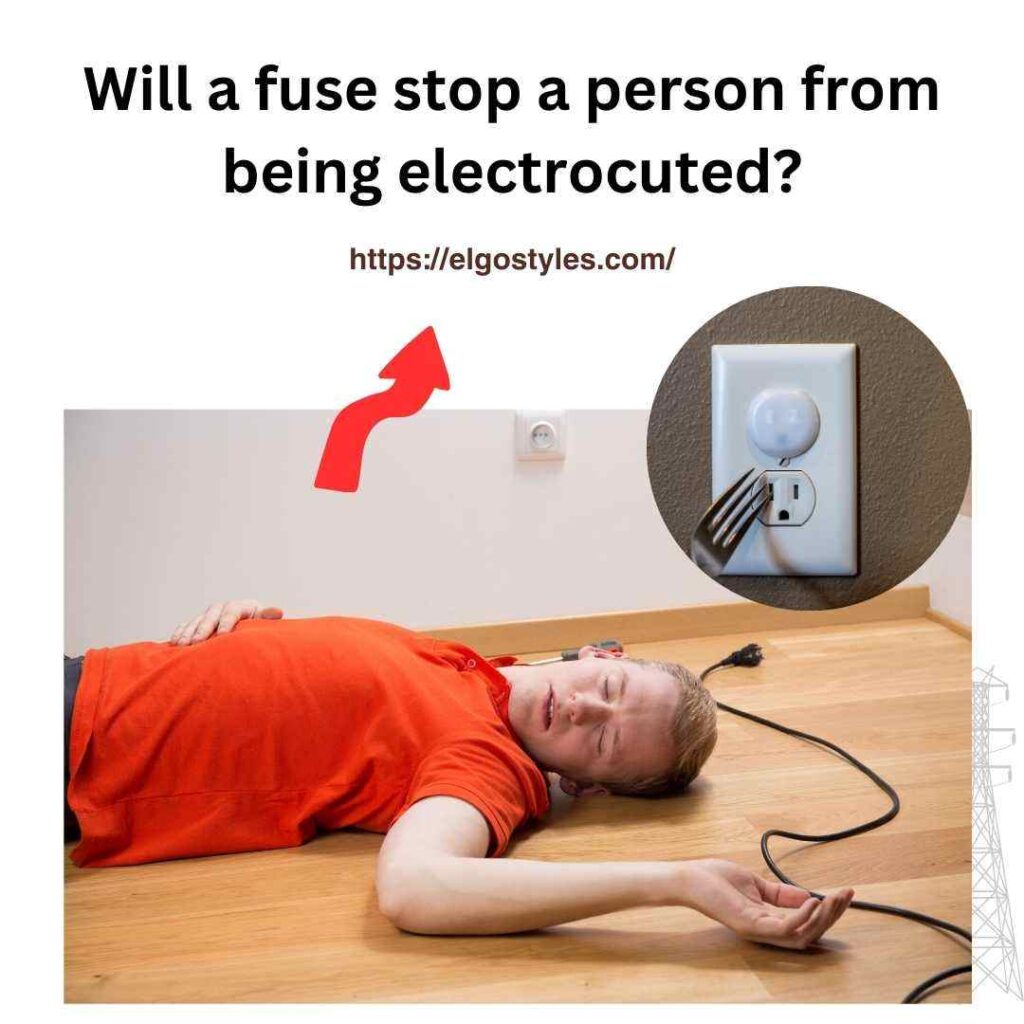Answer:
No, a fuse is designed to protect devices from overcurrent, not to prevent electrocution.

Reasoning:
No, a fuse will not stop a person from being electrocuted. A fuse primarily functions as a protective device against overcurrent situations in an electrical circuit. Its primary purpose is to break the circuit when the current exceeds a predetermined level, preventing overheating and potential fire hazards in connected devices or wiring.
Electrocution, on the other hand, occurs when an electric current passes through the human body. The severity of an electric shock depends on factors such as voltage, current, and the path the current takes through the body. Fuses are not designed to intervene in situations where a person comes into direct contact with an electric current.
In the case of an electrical fault leading to potential electrocution, the fuse may operate to cut off power and prevent further damage to electrical equipment, but it does not provide personal protection. Personal safety measures, such as using appropriate personal protective equipment, insulating materials, and adhering to electrical safety practices, are crucial for preventing electrocution. Fuses are a critical component of electrical safety but are not a direct solution to safeguarding individuals from electrocution.
FAQs:
Can a fuse prevent electrocution?
No, fuses are for overcurrent protection and do not prevent electrocution.
Do volts determine the severity of an electric shock?
Yes, higher voltage can result in a more severe electric shock.
Can a person survive low-voltage electrocution?
Survival depends on factors like current, duration, and prompt medical attention, not just voltage.
Does a higher wattage increase the risk of electrocution?
Higher wattage doesn’t directly increase the risk; it’s more about voltage and current.
Can rubber gloves protect against any level of volts?
Rubber gloves provide insulation, but protection depends on the voltage and the glove’s rating.
Can a low-voltage shock be harmless?
Even low-voltage shocks can be harmful depending on other factors like current and health conditions.
Will turning off the power prevent electrocution?
Yes, turning off power reduces the risk of electrocution as it cuts off the electrical source.
Do fuses protect against all electrical hazards?
Fuses protect against overcurrent, not all electrical hazards. Other safety measures are needed.
Can water increase the risk of electrocution?
Yes, water conducts electricity, increasing the risk of electrocution in wet conditions.
Is electrocution only caused by high volts?
No, it’s also influenced by current and the path it takes through the body.
 Electrical Engineering World Wiring a Brighter Tomorrow!
Electrical Engineering World Wiring a Brighter Tomorrow!